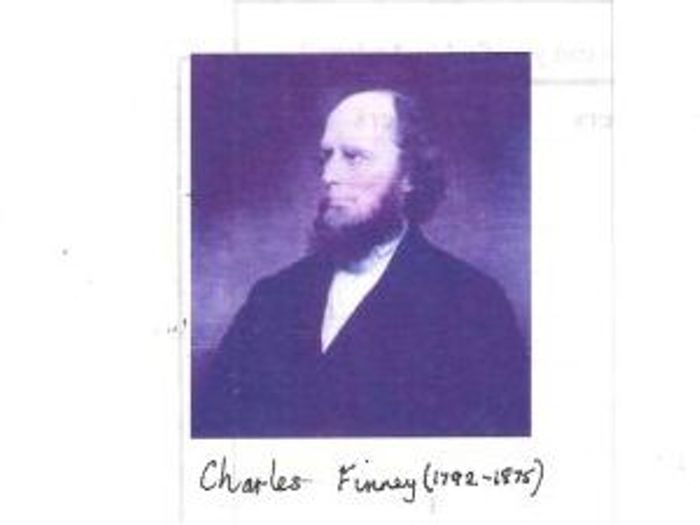In the 1800s charles grandison finney spoke out – In the 1800s, Charles Grandison Finney spoke out, embarking on a revivalist ministry that would profoundly impact the religious landscape of the United States. His approach to preaching, characterized by emotional appeals and a focus on personal conversion, ignited spiritual awakenings and sparked controversies that continue to shape religious practice today.
Finney’s early life and education laid the foundation for his unwavering faith. Born in Connecticut in 1792, he experienced a profound conversion experience that led him to pursue a career as a lawyer. However, after a period of intense spiritual struggle, he abandoned the legal profession to become a preacher.
Charles Grandison Finney’s Early Life and Education

Charles Grandison Finney was born in Warren, Connecticut, on August 29, 1792. His parents were farmers, and he was raised in a devoutly religious household. Finney’s early education was limited, but he showed a great interest in religion from a young age.
In 1821, Finney experienced a religious conversion that led him to become a preacher. He studied theology at the Oneida Institute in New York and was ordained in 1824.
Finney’s Revivalist Ministry
Finney was a pioneer in the revivalist movement of the early 19th century. He preached with great passion and intensity, and his sermons were often accompanied by emotional outbursts and physical manifestations, such as crying, shaking, and falling into trances.
Finney’s revivalist methods were controversial, but they were also very effective. He held revivals all over the United States, and he is estimated to have converted more than 500,000 people to Christianity.
Finney’s Theological Beliefs
Finney was a proponent of the “New School” theology, which emphasized the importance of personal experience and the role of the Holy Spirit in salvation. He believed that salvation was a gift from God, but that it could only be received through faith in Jesus Christ.
Finney’s theological views were controversial, and he was often criticized by more conservative theologians. However, his beliefs were widely accepted by the evangelical movement, and they continue to influence Christian theology today.
Finney’s Influence on Social Reform, In the 1800s charles grandison finney spoke out
Finney was a strong advocate for social reform. He was a vocal opponent of slavery, and he also supported the temperance movement. Finney believed that Christians had a duty to work for the betterment of society, and he encouraged his followers to become involved in social causes.
Finney’s influence on social reform was significant. He helped to raise awareness of the evils of slavery, and he played a major role in the temperance movement. Finney’s work helped to create a more just and equitable society.
Finney’s Legacy and Impact
Charles Grandison Finney was one of the most influential religious leaders of the 19th century. His revivalist ministry helped to spread the evangelical movement throughout the United States, and his theological beliefs continue to influence Christian theology today.
Finney’s legacy is also evident in the social reform movements that he supported. His work helped to raise awareness of the evils of slavery, and he played a major role in the temperance movement. Finney’s work helped to create a more just and equitable society.
General Inquiries: In The 1800s Charles Grandison Finney Spoke Out
What was Charles Grandison Finney’s approach to revivalism?
Finney’s approach to revivalism emphasized emotional appeals, personal conversion, and the use of techniques to evoke intense religious experiences.
What were the key features of Finney’s sermons?
Finney’s sermons were characterized by their passionate delivery, vivid imagery, and focus on the need for personal repentance and salvation.
What was Finney’s role in social reform?
Finney was a vocal advocate for social justice, particularly abolitionism and temperance. He believed that religious faith should translate into action to improve society.

